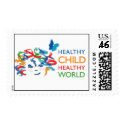You wake up, pad down the hall to the bathroom, yawn, and as you do so, you notice the flowers wilt in the nearby vase. OK, so maybe your breath isn’t quite bad enough to fell a flower, but we’ve all experienced the effects of dog’s breath, puppy breath or garbage mouth first thing in the morning. Others suffer from it throughout the day. Why do we have bad breath? And what can we do about it?

Causes of Bad Breath
The most common top reasons for bad breath are as follows:
1.) Bacteria spitting out stinky stuff into your mouth
In 85-90% of cases, bad breath is because of bacteria.
Our mouth, with it’s balmy 37°C climate and regular inflow of food, is paradise for a lot of microorganisms. Professor Wade, from the Dental Institute at King’s College London, tells us that per every 1 ml of saliva, there are 100 million bacteria, and that within the whole mouth there are more than 600 different species of bacteria. In fact there are so many bacteria which are constantly evolving, that scientists haven’t been able to describe them all yet. Having said that, researchers have identified species like Streptococci, Staphylococci, Porphyromonas, Corynebacteria, Lactobacilli, Actinomyces and Aggregatibacter: a small taste of the full smorgasbord of little critters that take residency in our mouths.
You know that whitish coating at the back of your tongue? That’s where a lot of the bacteria that cause bad breath live, thriving on little bits of food. You can get a feel for how much food stays on your tongue by looking at your tongue after you eat a colourful sweet. These bacteria also feed on dead cells and postnasal drip. (If you’re eating your lunch whilst reading this – I apologize.)
Another hangout of bacteria is in your gums. Usually a good toothbrushing can clean these away, but in people with gum disease, the bacteria settle in pockets between the gums and teeth, which toothbrushes can’t reach. So if you have smelly breath and swollen gums, gum disease may be behind it.
How do these bacteria cause bad breath?
As bacteria go about their lives, much like us, they release waste products. These wastes vary depending on the species of bacteria, and on what the bacteria eat (i.e. what YOU eat). The smell your mouth produces is highly likely to be unique to you, your diet and your individual cocktail of bacteria. Some of the wondrously malodorous waste products produced by certain anaerobic mouth bacteria include:
- Hydrogen sulphide: Otherwise known as “rotten egg smell”.
- Methyl mercaptan: Otherwise known as “rotten cabbage smell”, found also in farts and in urine after eating asparagus (for a subsection of people).
- Dimethyl sulphide: Another smell with cabbagey undertones.
Because all these foul-smelling chemicals contain sulphur, they are sometimes referred to all together as “volatile sulphur compounds”. It makes sense then that sulphur-rich foods in your diet aid in their production.
Whilst these volatile sulphur compounds are the main ones responsible for the smell of bad breath, there are also a few other minor bacterial waste chemicals which may contribute to it too, including Cadaverine (also produced by corpses), Putrescine (also produced by rotting meat), Skatole (found in human poop), and Isovaleric Acid (also made by sweaty feet).
Other contributors to bad breath…
2.) Dehydration
Lack of water consumption means that the bacterial wastes are more concentrated, and therefore, so is their smell. This is one of the main reasons why after a night’s 7-8 hour sleep, when saliva production is reduced and we don’t drink, we wake up with such bad morning breath.
Things that cause dehydration and which could therefore contribute to bad breath include caffeine and alcohol. Smoking and mouth-breathing (as opposed to nose-breathing) also have a somewhat drying effect.
Medications which have diuretic function can also exacerbate bad breath.
3.) Rarer causes of bad breath
Far more rarely, bad breath may be caused by another underlying ailment. The list of possible conditions causing bad breath is quite long but includes constipation, reflux, hypochlorhydria (aka low stomach acid), oral candida, tonsil stones, tonsillitis, nasal congestion-caused bad breath from respiratory problems like sinusitis, post-nasal drip, bronchitis and lung infections, diabetes (bad breath from ketosis), liver problems (even not so serious ones like sluggish liver resulting from nutrient deficiencies or toxin overload), kidney problems and Giardiasis.
Cures for Bad Breath
1.) Keep the bacteria from growing excessively
- Keep good oral hygiene:
If you’re not brushing your teeth and more importantly, your tongue, regularly, you’re allowing bacteria to proliferate. So make sure you shine those pearly whites 2-3 times a day and get that brush as far back on your tongue as you can without gagging . I personally like to use the Oral-B Professional Care SmartSeries 5000 Rechargeable Toothbrush (US)
. I personally like to use the Oral-B Professional Care SmartSeries 5000 Rechargeable Toothbrush (US)(UK)
, which my hygienist tells me is the best. Electric is definitely preferred because manual is more prone to missing places or cause receding gumlines.
You can even buy a special Tongue Cleaner (US)(UK)
if you prefer, to help you keep tongue bacteria at bay.
Make sure you have a good toothpaste too. You can search for healthy toothpastes here on Amazon US, or here on Amazon UK
. I’ve head that Miessence toothpaste (US)
is a good “healthy toothpaste” brand. Flossing is also important to prevent bacterial growth between your teeth.
The more dental plaque you have, the more at risk you are of bad breath, so make sure you visit a hygienist a couple times a year to help you keep those bacteria under control. Denture cleanliness is just as important as tooth cleanliness when it comes to bacteria-caused bad breath. - Avoid sugary foods and refined white carbohydrates like white bread, white rice, white pasta and white potatoes, which feed the bacterial growth. Always go for wholegrain alternatives. The less refined the food is, the less it will feed the mouth bacteria.
- Build up your immune system:
One of the reasons bacteria grow excessively may be because your immune system can’t beat them back. As a naturopath, I would suggest it’s important to check why your immune system is weak. Stress and digestive problems are both common causes of reduced immunity. Until you get to the root of the problem, you can strengthen your immune system with zinc, vitamin C, and probiotics, which may help reduce your bad breath. Zinc supplementation may be a particularly good idea also because a well-known side effect of zinc deficiency is bad breath.
Some good brands for these are:
- Zinc: Solgar’s Zinc Picolinate (US), (UK), where you’d take 2 tablets a day for a therapeutic dose of 44mg
- Vitamin C: Biotics’ Mixed Ascorbate Powder 300 G (US)
This is high dose vitamin C so a quarter teaspoon twice a day would be plenty (that would give you a total daily intake of 1384mg). I recommend the powder because this is best for absorption. Note: Very rarely, some sensitive people who aren’t used to taking supplemental vitamin C might get an upset tummy from supplemental vitamin C. If this is the case, reduce the dose to a quarter teaspoon (682mg) a day and see how you go. . UK alternative: Biocare’s Mixed ascorbates.Again, tailor the dose so that you’re getting 500-1000mg at first, and build up gradually.
- Probiotics: You could go the gentle route with natural probiotics like *live*, unsweetened, plain yoghurt, or live kefir. I generally am a little cautious about recommending using dairy though as quite a few people are mildly intolerant to it. A more high-dose approach that is suitable for casein-sensitive and lactose-sensitive people would be to supplement with probiotics. Some good brands are: Solgar’s Advanced Multi-Billion Dophilus (US) (UK) or Udo’s Choice Super 8 Probiotic (US)(UK) or VSL 3 High Potency Probiotic Capsules
2.) Drink plenty of water
8 glasses as day or 1 – 1.5 litres a day is optimal to dilute those bacterial wastes.
3.) Avoid Dehydrating things like alcohol, caffeine, smoking and mouth-breathing. Believe it or not, there are devices to help you avoid mouth-breathing called myofascial lip trainers.
Check your medications to see if they might have a side effects of being dehydrating or diuretic. Common culprits are blood pressure reducing diuretics, certain antihistamines, anti-anxiety medication, antidepressants and decongestants.
Other things that help you keep a nice and moist mouth include chewing on things like fennel seeds, cardamom seeds or a sprig of parsley. Chewing stimulates the production of saliva.
4.) You may want to avoid certain foods before events when you know people will be close enough to smell your breath (prime example: dates). 
- Sulphur-rich foods are fodder for making those volatile sulphur compounds, and therefore exacerbate bad breath. These foods include garlic, onions, and cabbage. Because proteins’ chemical structure is full of disulphide-bonds, proteins can also contribute to the sulphur load with foods like meat, fish, dairy, eggs, legumes, nuts and seeds.
- Other Aromatic foods: As mentioned above with the coloured sweet explanation, foods stick around on your tongue after you eat them. This is why things like cheeses, fish, salami, spicy food, coffee and alcohol can be smelled on your breath after you consume them.
5.) Use Mouth fresheners
This isn’t a “root-cause” treatment, but a temporary one to help eliminate the symptom. Mouth fresheners include:
- Natural mouth fresheners like fennel seeds, parsley leaves, cardamom seeds, coriander seeds, dill seeds, sage leaves, and mint leaves.
- Mouthwashes - BUT only ones that will not exacerbate the situation. A lot of commercial mouthwashes contain alcohol, which we’ve mentioned is dehydrating and helps drive bad breath in the longrun. Good mouthwashes to go for are those that containing zero alcohol, zinc (to boost immunity and neutralize the bad smells), chlorophyll (which is great for binding to a lot of nasties that are floating around in your mouth), essential oils, and herbal antimicrobials rather than chemical-sounding ones.
- For UK visitors: Aloe Dent make a great alcohol-free mouthwash with antimicrobials like grapefruit seed extract and meleleuca alternifolia. Jason make a good water-based mouthwash too with zinc and chlorophyll in the form of blue-green algae.
- For US visitors: This is a good one that doesn’t contain alcohol: Natural Dentist – Healthy Gums Daily Oral Rinse, available in peppermint and orange flavour, and containing bacteria-fighting Goldenseal and Grapefruit seed extract, although it doesn’t contain chlorophyll or zinc.
This one is also great and alcohol-free: Now Foods Xylitol Mouthwash, 16-Ouncebut again no chlorophyll or zinc.
What you can do is add a splash of liquid chlorophyll to your mouth wash for the optimal rinse. e.g. Sunny Green Liquid Chlorophyll, Unflavored, 16.2-Ounce
6.) Manage any infections
If you’ve been diagnosed by a doctor with an oral microbial infection, or respiratory tract infections (e.g. sinusitis) which are likely to be behind your bad breath, you might want to look into herbal antimicrobials like tinctures of goldenseal, berberine, or grapefruit seed extract, to help you manage the infection before trying antibiotics or other drugs. Thieves Essential Oil by Young Living or Oregano Essential Oil by Young Living
are also a great antimicrobials which you can swish around in your mouth ONLY when diluted with 1 drop of oil to 3-4 tsp of olive oil or coconut oil. Swish and pull through your teeth for 4-5 minutes, and you can try to build it up to 20 minutes if you can, for optimal results. (This technique is known as oil-pulling, which you can read about in Oil Pulling Therapy: Detoxifying and Healing the Body Through Oral Cleansing by Bruce Fife
)
Steaming with a few drops of tea tree essential oil (Melaleuca (Alternifolia) Essential Oil by Young Living) is great for treating bacterial or fungal sinusitis.
-
7.) Treat any other potential causes
This includes treating constipation, low stomach acid, digestive health, immunity, liver and kidney health. It’s really important to get to the root cause if you want to eliminate chronic bad breath.
Related Products
Note:
This site is working in affiliation with Amazon.com (for USA visitors) and zazzle.com. If you like a product that was recommended anywhere on this website, please consider buying these products via the links on this site, to help keep this website running. Thanks ![]()
Disclaimer:
Every effort has been made to ensure that the information contained in this article is accurate. However the information contained in this article is for educational purposes only. Suggestions contained in this article are not intended as a substitute for consultation with a health professional. All matters regarding health and supplementation require medical supervision and careful examination of contraindications. The author does not accept responsibility for the use of this information, nor shall the author be liable for any loss, injury or damage allegedly arising from any information or suggestions in this article.










Love this article. I will never kiss again
I have always found mouthwash too dehydrating. I tried changing to one without alcohol, Oral B (I think). However, the ones you mentioned may be better.
Thanks for the comment Ana
Some of the well-known brands do have mouthwashes with no alcohol which is good, but most of them don’t have the other goodies like herbal antimicobials/ essential oils/ zinc/ chlorophyll. And quite a few of them have nasties in them like parabens which don’t do our delicate hormonal balance any favours. It’s definitely worth checking out the ingredients on these things before you buy them.
Great info, its hard to look for info as valuable as this these days!
found your site on del.icio.us today and really liked it.. i bookmarked it and will be back to check it out some more later…
Plain Yogurt – You can eat plain, unsweetened, yogurt both internally and externally. It works because plain yogurt’s great probiotic bacteria assist fighting yeast. In case you want, use a yogurt starter to make your own plain yogurt. It’s also very good to eat plain yogurt just before a meal since its very good bacteria aids your digestion process. It’s said that garlic will provide you instant relief. A clove or tablet. Make certain the garlic tabs are pure and natural. It is possible to take a garlic tab internally, or drink a glass of water with a pressed entire garlic clove.
Hi Loria,
Thank you for your comment!
Using plain live yoghurt as a probiotic can be a milder alternative to supplemental probiotics and is a great idea – I’ll add it to the article above! Make sure that it is *LIVE* yoghurt otherwise it won’t be of any help in balancing out the bacteria in your mouth and gut.
The raw garlic cloves can be a bit tricky with bad breath because it is quite infamous for causing bad breath because the particles of it tend to stick to your tongue for hours or even days. You’re right that it’s a great antibacterial / antimicrobial. I would probably suggest short courses of other antimicrobials that are less bad-breath-inducing like goldenseal, oregano, berberine, grapefruit seed extract, or Young Living’s Thieves essential oil if the cause behind the bad breath is a bacterial infection or excessive bacterial growth in the mouth and/or gut.
Lior
nice post. thanks.
good text
There is noticeably a bunch to know about this. You made nice points!
Phenomenal breakdown of the topic! Thanks for explaining things so clearly and thoroughly
This blog is very well written, keep up the good work!
you have an amazing weblog here!
After study just a few of the blog posts on your web site now, and I actually like your means of blogging. I bookmarked it to my bookmark web site listing and will likely be checking again soon.
I want to post quick hello and want to say appriciate for this good article.
Superior thinking demonstrated above. Thanks!
Bad breath is a problem that needn’t be. Thank you for all the information you provide to help eliminate this problem.
Very helpful post man, thanks for the info.
I am impressed with this site, very I am a fan .
Hi, yes it is a good site and subjects are addressed in a mature and considered manner, and all that is stated is true. I would just like to add that Golden Seal (Hydrastis canadensis) is in very short supply, is very expensive and may even become extinct due to over collecting. It is difficult to propogate, being a very fussy plant, so purchasing it encourages companies to keep collecting it. It needs to be left alone. One herbal medicine which is not on the ‘at risk’ list, and is also extremely useful as a mouth wash is Myrrh (Comiphora molmol). Tincture of Myrrh (yes it is an alcoholic extract) format for ease of use and efficacy. It not only kills bacteria and viruses and other microbes but it tones the gums, making them more resistant to infectious agents. As a Medical Herbalist in the UK I have used it for 20 years in all sorts of oral problems and have found it to be extremely effective and well tolerated. Alcohol is dehydratory when drunk in any quantity, but not if it is just swished around the mouth. And of course, the antidote to dehydration is to drink water.
Thanks again. Afifah Hamilton MNIMH (Member of the National Institute of Medical Herbalists)
Hi Afifah,
It’s interesting to hear that about Golden Seal and Myrrh as well as the point about alcohol. Thank you for your comment : )
Lipr
Great article. Thanks so much.
I just started taking probiotics and stem cells for another illness. It felt like I got bad breath at the same time. By looking at this, maybe it was just a coincidence.
Hi Danny,
I hadn’t heard of probiotics causing bad breath before, but I did a little internet search after reading your question and found one source that said that if you’re sensitive to dairy, a dairy-based probiotic can exacerbate bad breath. To be honest with you, I haven’t yet read up on this to check it out for sure, but it would be interesting to see if your probiotic is a dairy-made one, and if it is, try a non-dairy one and see if that helps reduce the bad breath.
Lior
Hello there, simply turned into aware of your blog thru Google, and found that it is really informative. I will appreciate if you continue this in future. A lot of other folks will be benefited from your writing. Cheers!
Very helpful post man, thanks for the info.
Wow interesting topic , tx for the info .
It’s hard to find well-informed people on this subject, but you sound like you know what you’re talking about!
Thanks
thank you for your help, think i tried every thing,Every doctor under the globe without a solution and always back at the beginning,spent a fortune. i have some of the product you mention here.
i hate when you i am brushed off to talk to your dentist,most don’t care or don’t know nothing
thank
What is the best solution of tonsil stones?
My doctor has failed to help me. I am very conscious about
The breath 24 hours. I afraid to open my mouth
To talk to people. Can you help?
Hi B Loyal,
I remember a naturopathy lecturer teaching us that tonsil stones are often related to food intolerances. i.e. something that you’re eating may be causing an inflammatory reaction of some sort, creating more mucus and similar secretions which can result in tonsil stones. Try seeing if there is a correlation between when your tonsil stones appear and what particular food you had eaten the day before. The most common culprits are usually wheat / gluten and dairy, but it could be something else unique to you. Avoidance of the food/s you are sensitive to and dealing with the reason behind the food intolerance/s may help minimize tonsil stone formation.
In my personal experience, depending on how deep the tonsil stones are, it is sometimes possible to remove them with a clean finger to prevent them from staying there and emitting any smell. Be aware that it can take a little time to develop a tolerance against gagging / wanting to throw up when you stick your finger in that deep in your mouth though. Don’t do it if you feel you will throw up doing it.
I hope that helps
Lior
Basically, all the food eaten begins to be broken down in your mouth. As foods are digested and absorbed into the bloodstream, they are eventually carried to your lungs and given off in your breath. If you eat foods with strong odors (such as garlic or onions), brushing and flossing — even mouthwash — merely covers up the odor temporarily. The odor will not go away completely until the foods have passed through your body.:*^,
Au revoir
I have this problem for years I went to the doctor no help the dentist told me it’s all in my head take my money and didn’t help me thanks to the nice people on this site.I am taking probiotic blend withpectin.and capsule clindamycin every 6 hours it helping me. hopefully I going back to the doctor for him to give me metronidazole.